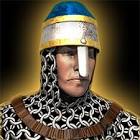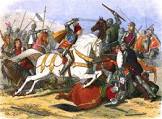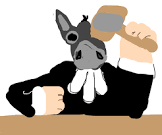- ‘Lies, damned lies etc…’ - 13th February 2026
- Missing in action - 12th February 2026
- Travel news again - 11th February 2026

After a piece about legal rules was seen by two academics, one in Cambridge and one in New York, who have together written a book concerning the need to update treason laws, they contacted The Eye to endorse the item.
Allen D Boyer and Mark Nicholls have stressed the importance of Welsh figures in demands for a change in the law, and why journalists like our Editor, Welshman Phil Parry, have always played a crucial role.
It is heartening to be told that what you write is being read by people all over the world.

After a report on the The Eye about the book ‘TREASON. The Rise and Fall of Treason in English History’ by two academics. Allen D Boyer and Mark Nicholls, I was contacted from New York with a message of support.
Dr Boyer is in the American city, while Dr Nicholls is in Cambridge.
Dr Boyer said: “This week, Mark Nicholls and I saw your article ‘Lawful Entry’ — and we were very glad to read it. Thank you for amplifying our questions and concerns about why and where laws ought to be updated”.
In an interview with me they have stressed the central role of key Welsh events in the call for a change in the law, and how the need for a legal updating is incredibly urgent today.

As a student of history (I studied Politics and Modern History at the University of Manchester [UoM]), I find the following facts fascinating!
Dr Boyer has stated: “It was a Welsh Whig politician, John Wynne Griffiths (1763-1834), who led in calling for reforms during the 19th Century. Griffiths was one of the first politicians to argue that charging conspirators with high treason only served to glamorize their actions. Unless defendants were clearly engaged in planning rebellions or a royal assassination, they should face lesser charges of focusing on violence. Griffiths felt that juries would be more likely to convict on these lesser charges.

“…Since Tudor days, treason in Wales has been governed by the same law that applies in England. Under Henry VIII, the Treason in Wales Act (1540) authorized royal commissioners to try defendants for offences committed in Wales and other places where the king’s writ did not run.
“For an even longer period of time, Wales has played a recurring role in the English law of treason.
“In 1283, Edward I captured Dafydd ap Gruffudd, brother of Prince Llywelyn. He was convicted of treason by a parliament sitting at Shrewsbury. He was the first treason defendant to face the full grisly punishment.


“He was hanged for murder, disembowelled because he had levied war sacrilegiously, by launching a surprise attack on Palm Sunday, and, because he had plotted the king’s death, his body was cut into four pieces. But Dafydd was punished not only for being a Welsh rebel, but also for being an English baron. He had been reared in England (as a hostage) and promised a baron’s rights; he had dealt face-to-face with the king; and he had refused to do homage and denied English jurisdiction over Welsh land.
“Intriguingly, around 1400, early in Henry IV’s reign, there were claims that perpetrators in London – counterfeiting was originally treason – were aiding Owain Glyndwr by counterfeiting English coin and by secretly transferring silver from English churchmen to Welsh rebels. During the Wars of the Roses, there were plots and affrays in the Marches, Yorkist uprisings put down by Lancastrian barons and judges.

“John Wynne Griffiths’s efforts were not the (only) time that Wales figured in the movement to reform treason. The last time that the full medieval sentence of drawing, hanging, and quartering was passed in Britain, it was against three Chartists, who had participated in a rebellion in South Wales in 1839: John Frost, Zephaniah Williams and William Jones. However, the young Queen Victoria grasped how obsolescent the penalty had become, writing in her diary that these punishments recalled an earlier age, ‘just like in former times.’ Thousands of subjects signed petitions for clemency, and Frost, Williams, and Jones were finally sentenced to transportation.”

Dr Boyer also emphasises in the interview, the central part that journalists like me have to play. He declares: “Truthful reporting of facts is essential. One of the first instances of ‘treason by words’ came in 1163. During a skirmish, the earl of Essex panicked, dropped the royal standard, and shouted erroneously that the king had been killed. For this he was found guilty of treason, and was sent to a monastery for the rest of his life.

“Historically, governments try to control opinion and keep criticism from finding broad acceptance. The doctrine of ‘treason by words’ was expanded during the Hundred Years War, when ordinary subjects began to gripe publicly about the cost of the war and failures by royal commanders.
“Today, there are often specific statutes or government policies that guard against disruptive or anti-social speech, based on community values. But treason is not the offense charged in such cases. The common-law offense of seditious libel (which had its heyday in the 18th Century) was abolished in 2009.”

Dr Boyer adds about their book: “This is a history of treason, not intentionally a doctrinal analysis. (Treason has meant everything from rebellion and regicide to counterfeiting and husband-slaying.) We deal with how doctrine evolved, but we focus on treason law in action: how governments respond to disloyalty, and the examples and humorless ironies that result.
“We describe how treason law has changed over time, sometimes by active government action: by scores of statutes during the Tudor dynasty (although Henry VIII’s laws hardly count as reforms) and more recently during the Victorian era…”

So now we know – history shows us that the law must be reformed, and Wales as well as accurate journalism are crucial!
The memories of Phil’s decades long award-winning career in journalism (when the lessons from history were always vital) as he was gripped by the rare neurological disease Hereditary Spastic Paraplegia (HSP), have been released in a major book ‘A GOOD STORY’. Order it now!

Read this book alongside The Rise and Fall of Treason in English History by Allen D Boyer and Mark Nicholls which is published by Routledge.
Tomorrow – why during 41 years in journalism (when he was trained to use simple language, avoiding jargon) for Phil, legal issues like these and how they have been distorted have always been paramount, and now this is underlined by the arrest in France of the boss of a social media platform on charges related to child sexual abuse material, and that for controversial Elon Musk it showed people in Europe will soon be “executed for liking a meme”.









